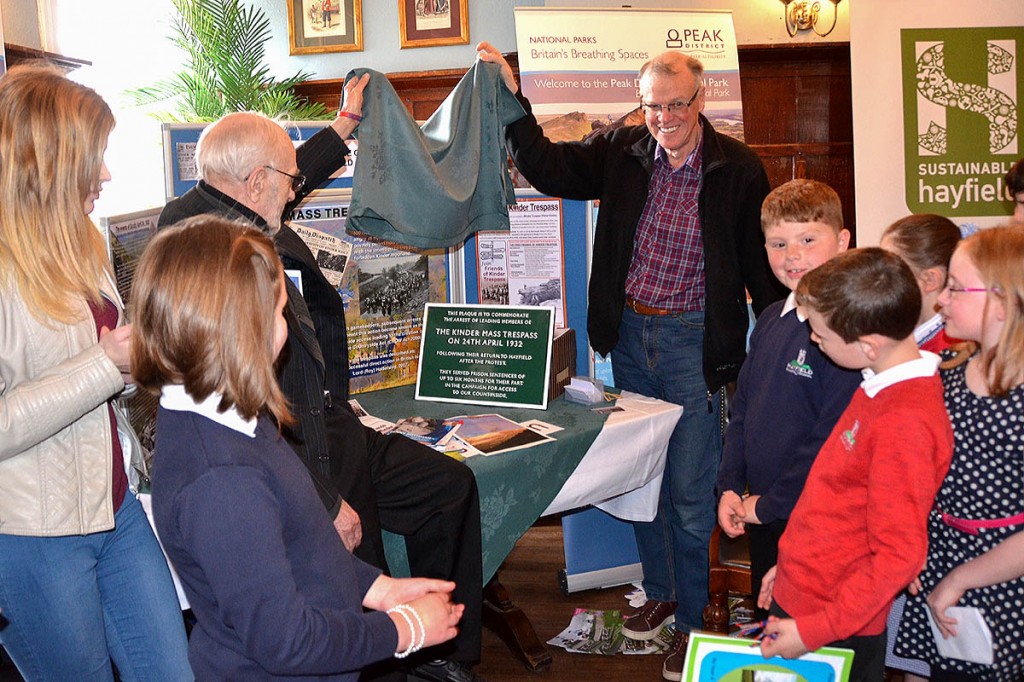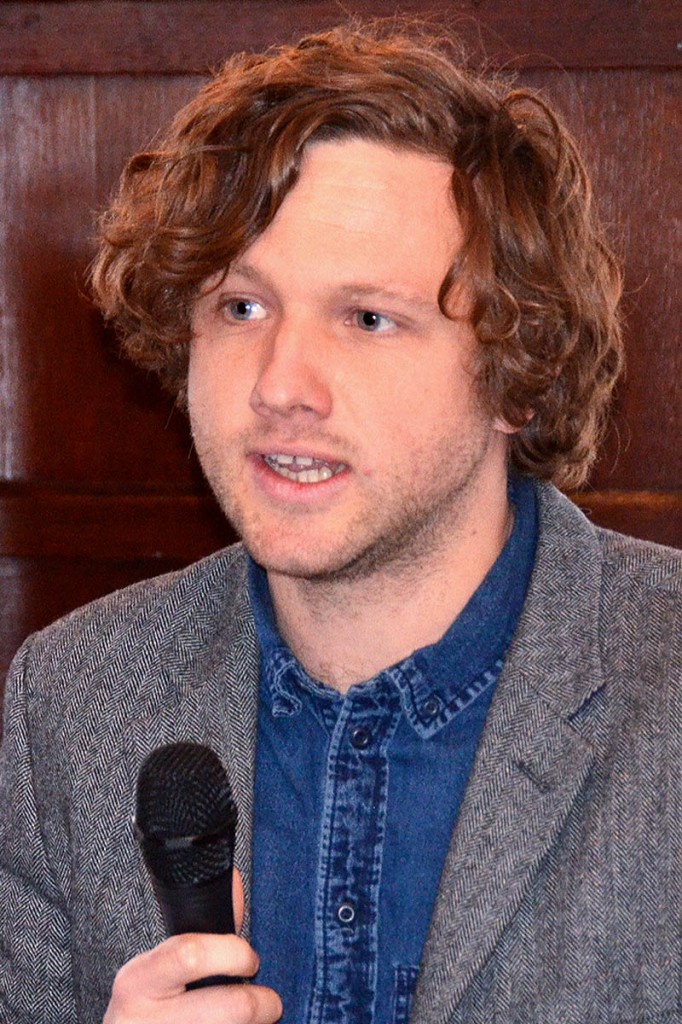If the Kinder Scout Mass Trespass took place in 2016, its participants would likely have been kettled before getting out of the car park and labelled extremists, an outdoors expert said.
Carey Davies, hillwalking development officer with the British Mountaineering Council, made the point at a meeting to commemorate the 1932 event in the Peak District.
He was speaking at the fourth annual Spirit of Kinder day in Hayfield, the village from which the walkers set out for their attempt to reach the area’s highest hill.
Mr Davies said the longing for a vision of the land ‘for a sense of space and a sense of place’, was universal, describing a recent walk he took through war-torn Palestine.
He said: “With the benefit of hindsight, the Kinder Trespass has now become heritage; an act which mainstream politicians and respectable organisations now feel comfortable endorsing.
“But let’s take a closer look at it. There were 400 young people, many of them unemployed, led by people from ethnic and religious minorities, all following a radical ideology. We shouldn’t lose sight of just how challenging and provocative it was.”
He pointed out there were still barriers of access, social background, ethnicity, gender, mental illness or disability which prevented many people in this country from knowing the lasting satisfaction of a long walk or a hard climb.
He said the BMC was working in partnership with other organisations to try and do what it could to help people overcome these barriers, and crowdfunding campaigns like the BMC’s Mend Our Mountains were repairing badly-eroded paths, such as that below Ringing Roger on Kinder.
“Too many people live lives without landscape, in nondescript and forgotten places which foster a sense of marginalisation and contempt,” Mr Carey said. “Access to the outdoors has to be seen as part of a social whole. I believe the Kinder Trespassers understood this well. Their struggle was always part of a struggle for something bigger.”
The event marked the confrontation between the trespassers, led by Benny Rothman, and the Duke of Devonshire’s staff on the hillside, and was organised jointly by the Kinder Visitor Centre Group and the Kinder & High Peak Advisory Committee. A highlight was readings by pupils from New Mills College and Hayfield Primary School, describing their feelings of freedom after a walk on Kinder.
Dave Toft of the KVCG outlined the story and background to the trespass, and claimed Kinder Scout and access to its moors was the children’s’ birthright. “But according to figures from Natural England, only 8.7 per cent of the country still has free access. So as Benny Rothman would say, our work is not complete.”

Alan Edwards, left, and Jan Gillett unveil the commemorative plaque, which will be placed on the outside wall of the Royal Hotel
Philip Pearson, former senior policy officer at the Trades Union Congress, and a keen hillwalker, spoke about Benny Rothman’s work as a trade union organiser, in addition to his being the leader of the Kinder trespass.
He said that the environment and climate change were major issues for trade unions today, which he felt Benny would have well understood, and he outlined was unions were doing about it. He added that a local pupil had written: “Freedom means everything to me – it allows me to be the person I am.” Mr Pearson said: “This said everything about Benny Rothman, the leader of the trespass.”
Mark Metcalf, author of a new biography of Rothman, explained that Rothman’s four months imprisonment was not wasted, because while he was there he learnt shorthand, which stood him in good stead in his future life as a union negotiator.
Musical interludes were provided by folk singer Brian Peters, who led the traditional final singing of Ewan MacColl’s Manchester Rambler.
Jan Gillett, son of one of the imprisoned trespassers and 86-year-old Alan Edwards of Stockport, who as a two-year-old had been carried there by his elder sister, unveiled a commemorative plaque which will eventually form part of a Trespass Trail.
Exhibitions of work by local children and local artist Sarah Morley were held in the Village Hall. On Sunday walks were led on the trespass route.
Among the organisations attending the event were the Ramblers; Sheffield Campaign for Access to Moorland; British Mountaineering Council; the National Trust; Hayfield Civic Trust; Sustainable Hayfield; the Kinder Mountain Rescue team and Friends of the Peak District.

Mike Gibson
25 April 2016Carey is absolutely right.
There is a parallel with extremists today or more to the point the view and interpretation of what is extremists.
In those days it was communists.
It could very soon include Mountain Bikers who are unfit or disabled and chose to ride pedelecs. In my view these are the best thing for folk since the invention of the wheel.